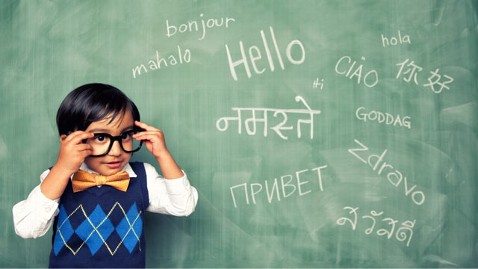It is a widespread belief that being bilingual or multilingual is enough to make someone a reliable translator. However, even though being bilingual is one of the prerequisites to being a translator, there are considerable differences between bilinguals and translators.
In our last post, one of our main tips for a successful translation project was to entrust your project to a professional translator rather than someone unqualified or inexperienced. In this post, we thought it would be useful to take a closer look at what defines and differentiates translators and bilinguals, and to explain the highly specialised nature of a translator’s occupation.
Bilinguals
According to the Oxford Dictionary, a bilingual is “A person fluent in two languages.”
Bilingual people are able to communicate in two languages, sometimes with different levels of fluency in each language, but they are not necessarily good at transferring information between the two languages and cultures. In the majority of cases, bilinguals acquire and use their languages for different purposes, in different situations, and with different people. Some bilingual people are only able to talk about certain topics in one of their languages. If they always speak the same language at work, for example, they might find it difficult to suddenly switch to their other language, especially if the subject is quite specialised.
Bilingualism on its own is not a guarantee of written fluency, or of skills in translation. Bilinguals may lack the skills, experience, cultural knowledge or terminology linked to a language or a specific subject matter to produce an accurate translation.
Translators
According to the Oxford Dictionary again, a translator is “a person who translates from one language into another, especially as a profession”. This definition is quite general and succinct. In the paragraphs below, we take a closer look at the main abilities and skills of professional translators and that bilinguals do not necessarily possess.
Professional translators are:
Linguists
Translators are skilled in foreign languages and are either bilingual or multilingual. They master perfectly the language into which they are translating. The vast majority of translators only translate into their mother tongue. Of course, they are fluent in their source language(s) as well.
Bilingualism is a preliminary stage to the development of translation competences.
Readers and Writers
Translators are required to be excellent readers in a source language and exceptional writers in a target language. Translators must read, understand and preserve another person’s ideas, and they produce texts that read well in the target language. They have excellent writing skills and the ability to express themselves with the appropriate style and terminology, clearly, precisely and unambiguously in their target language. They also possess a rich and varied vocabulary and have the resources to find exact words and terms.
Bridges
Translators are effective bridges between languages. They are capable of transferring the message of the original text in their native language so that it has the same effect on the target reader as it has on the source reader.
Qualified
Translators are formally trained and hold one or several qualifications in translation.
Experts in their fields
Most translators are highly educated and they also often have additional qualifications in specialised fields such as law, medicine, engineering, EU matters, accountancy, sciences, arts and humanities, etc. If you would like to pursue a career in translation the ITI website provides helpful advice for newcomers: http://www.iti.org.uk/about-industry/advice-newcomers
Professional translators must possess a wide range of abilities:
Research and reading skills
Because of the variety of topics that translators have to work with or the highly specialised nature of some material, they tend to be curious individuals and eager to learn about many topics. They develop good research and reading skills.
A critical and analytical mind
To produce a quality translation, professional translators have to be able to identify potential errors in their draft and to tell apart a good word, sentence or register from one that is not so good or appropriate. In other words they have to take a critical look at their work and assess how good their translation may be.
Good memory and resources
The ability to remember words, expressions, idioms, terminology etc. is a very valuable skill for a translator. Throughout their career, translators also learn to use efficiently a wide range of resources (dictionaries, glossaries, databases, translation memories, personalised files, etc.) that facilitate their work.
Discipline
Most of the time translators are not free to express their linguistic creativity. Their translation must reflect the original text and render it in comparable terms in the target language.
Connectivity and IT skills
For most organisations, ordering a translation is the last phase of a complex process, and therefore most translation projects are fairly urgent. That is why we expect translators to be hyper-connected and responsive. Clients are also increasingly exacting in their instructions regarding the format and layout of their files, and translators constantly have to adapt to these new requirements.
Cultural knowledge
Another essential skill for a translator is a good knowledge of the source and target cultures. This facilitates, for example, their understanding of the original message, and also helps prevent any cultural faux-pas.
Good attention to detail
Professional translators must be perfectly accurate in their work. Their translations must be faultless and precise in tone and meaning: approximations simply don’t work.
We hope this article helped you understand why being bilingual isn’t the same as being a professional translator, along with the main qualities and skills professional translators need to have. If you have any questions or if you would like to discuss your project with us, please do not hesitate to call us on 0800 389 6571 or email us at translation@aplin.co.uk.






